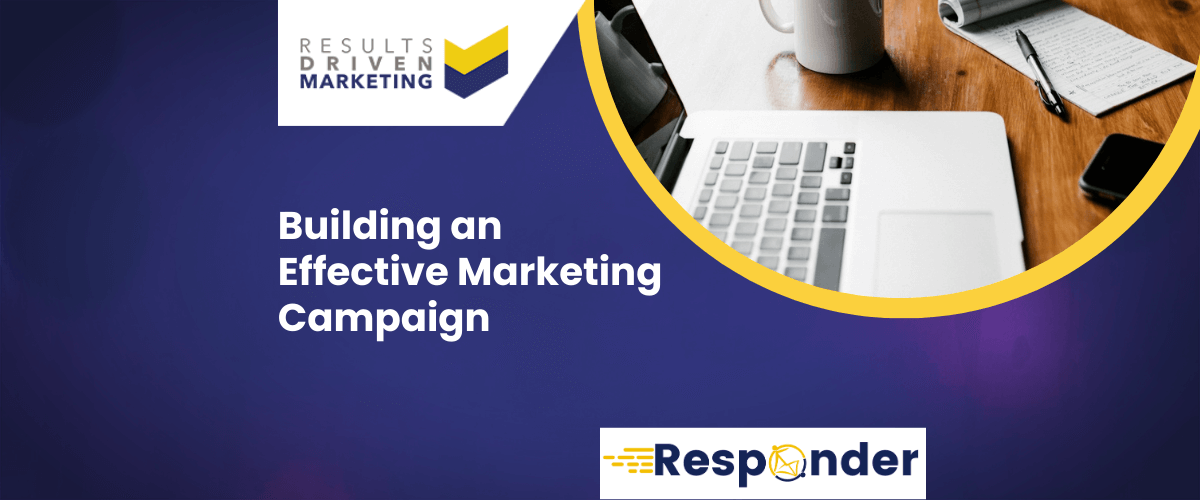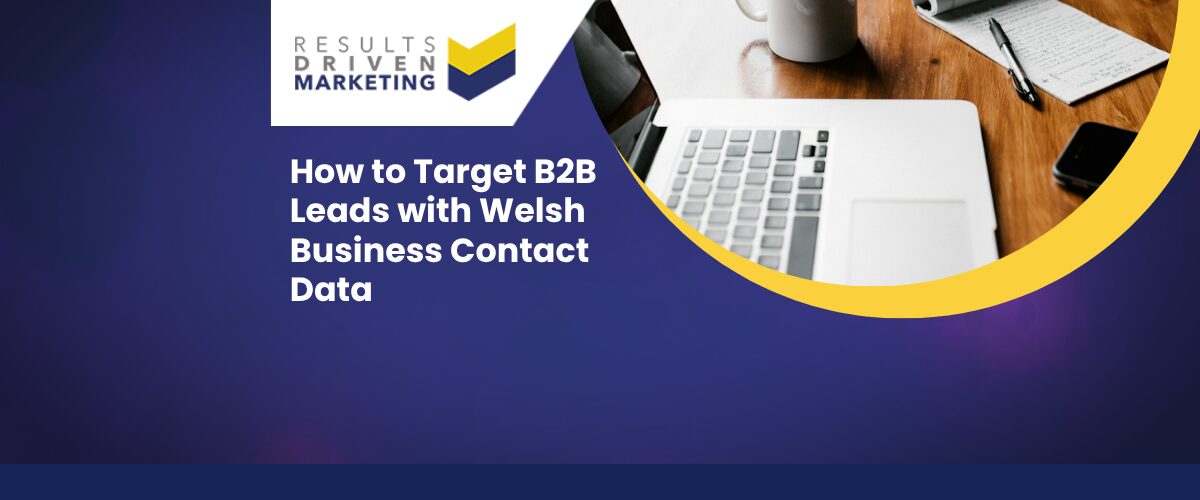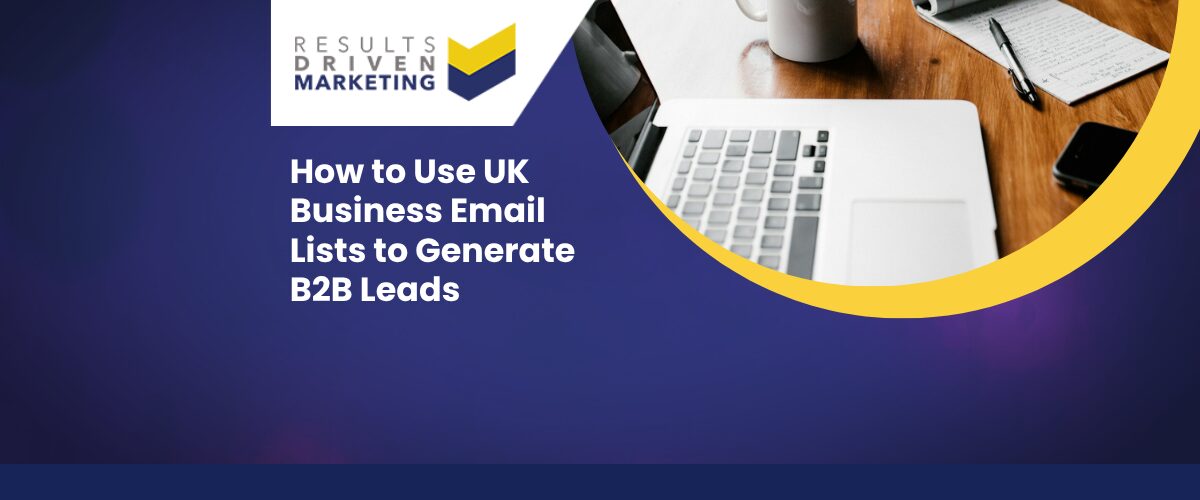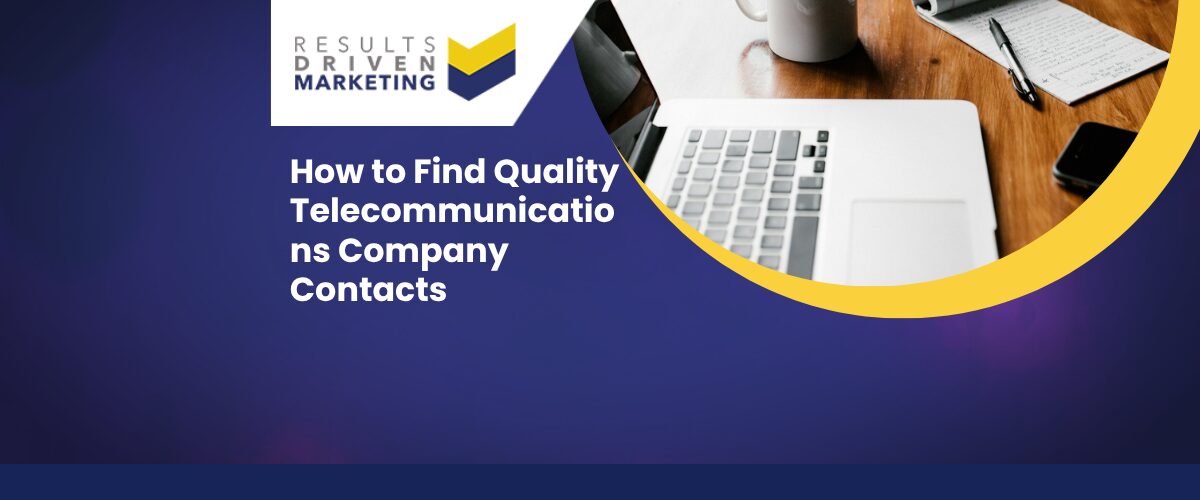
Building an Effective Marketing Campaign
Effective marketing campaigns are the cornerstone of successful business strategies. This article will delve into the key elements that make marketing campaigns effective, ensuring they resonate with the target audience and achieve desired outcomes.
We’ll explore various strategies, tools, and innovative approaches that can elevate a campaign’s impact. By understanding the nuances of effective marketing, businesses can craft campaigns that not only capture attention but also drive meaningful engagement and growth.
Table of contents:
What Is a Marketing Campaign?
So, what exactly is an effective marketing campaign? Think of it as a coordinated symphony of strategic moves, all harmoniously aligned with the singular aim of promoting and elevating your product or service.
It’s a well-oiled machine, each part working tirelessly to catch the eye, engage the mind, and, ultimately, win the heart of your prospective clientele.
Marketing Campaigns vs. Advertising Campaigns
Now, don’t get it twisted; a marketing campaign is not the same old song as an advertising campaign. While advertising plays its part, crooning the virtues of your offerings, an effective marketing campaign orchestrates the entire ensemble—pricing, promotion, distribution, and more—to serenade your target audience from every conceivable angle.
Why Are Marketing Campaigns So Important?
Why, you ask, are marketing campaigns the lifeblood of your business’s growth? Well, without them, you’re akin to a ship without a sail, drifting aimlessly in a sea of sameness.
Effective marketing campaigns are your sails, catching the winds of consumer interest and propelling your business into the limelight.
Types of Marketing Campaigns
Let’s dive into the types of marketing campaigns that can set your business apart:
Product Marketing Campaign
This is the frontline soldier of your marketing army, showcasing the features, benefits, and value of your products. It’s about telling a compelling story that resonates with your audience, making your product not just seen, but sought after.
Brand Development Campaign
Here’s where you carve out your identity in the marketplace. A brand development campaign is about crafting and disseminating the essence of your brand. It’s how you become more than a logo; you become a trusted friend to your customers.
Email Marketing Campaign
The bread and butter of direct marketing, an email marketing campaign is your digital handshake. It’s personal, it’s direct, and when done right, it’s incredibly effective at driving sales and building relationships.
Content Marketing Campaign
Content is king, and a content marketing campaign is your kingdom’s expansion strategy.
Through blogs, videos, infographics, and more, you provide value that attracts and engages your audience, establishing your brand as an authority.
User-Generated Content Campaign
Nothing speaks louder than the voice of your customers. A user-generated content campaign leverages this voice by encouraging customers to share their experiences, creating a ripple effect of endorsement and trust.
Public Relations/Awareness Campaign
Finally, the public relations or awareness campaign is your megaphone to the masses. It’s about building and maintaining a positive image, managing the narrative, and ensuring that your business is seen in the best possible light.
Each of these campaigns, when executed with finesse and foresight, can be a cog in the wheel of an effective marketing campaign, driving your business forward with momentum that’s hard to stop.
Direct Mail Campaign
When it comes to an effective marketing campaign, let’s not overlook the charm of a direct mail campaign. It’s like a friendly tap on the shoulder in a world full of digital shouts.
Here’s the deal: you get to land right into the hands of your audience, quite literally. It’s tactile, it’s personal, and with the right creative spark, it can be incredibly memorable. Imagine your message, nestled among the daily post, waiting to unfold its story to a captive audience. That’s direct mail for you.
Affiliate Marketing Campaign
Now, let’s chat about affiliate marketing campaigns. Picture this: a network of allies, all singing your praises to their own audiences. It’s about harnessing the power of partnerships to spread the word about your brand.
You provide the tune, and they play it to their crowd. It’s performance-based, which means you’re looking at a cost-effective approach to an effective marketing campaign. Affiliates can be your brand ambassadors, and their endorsement is worth its weight in gold.
Social Media Campaign
Ah, social media, the bustling town square of the digital age. A social media campaign is your soapbox here. It’s where you get to mingle, interact, and really connect with your audience. But it’s not just about posting willy-nilly; it’s about crafting a narrative that sticks, engages, and spreads like wildfire.
With the right content, you’re not just talking at your audience; you’re talking with them, and that’s where the magic happens in an effective marketing campaign.
Acquisition Marketing Campaign
An acquisition marketing campaign is all about rolling out the red carpet for new customers. It’s a focused effort to convert prospects into loyal fans of your brand.
Think of it as the first date with your potential customers—you want to put your best foot forward, make a lasting impression, and set the stage for a long-term relationship. It’s about sweetening the deal to make that first purchase a no-brainer.
Paid Marketing/Advertising Campaign
Let’s turn the spotlight on paid marketing and advertising campaigns. This is where you pony up some dough to get your message out there. It’s about strategic investment, placing your ads where they’ll generate the most buzz and returns.
Whether it’s pay-per-click, display ads, or sponsored content, you’re buying your way to visibility. And when done with a sharp eye on ROI, it can be an incredibly effective marketing campaign lever.
Interactive Marketing Campaigns
Interactive marketing campaigns are like a hearty handshake—they engage directly with your audience. It’s two-way communication, a dialogue that not only tells your story but invites your audience to become a part of it.
Quizzes, polls, interactive videos—these are the tools of the trade. They draw the audience in, making them active participants in your narrative. And when they’re part of the story, they’re more likely to stick around.
How to Create a Successful Marketing Campaign
Creating a successful marketing campaign isn’t just about throwing ideas at the wall and seeing what sticks. It’s a methodical process. You start with a goal, sharp as a tack.
Then you get to know your audience, inside out, like the back of your hand. From there, it’s about crafting a message that resonates, choosing the right channels, and timing it to perfection. It’s a mix of art, science, and a dash of intuition.
Planning Your Marketing Campaign
Planning your marketing campaign is like plotting a journey. You need a map, a compass, and a clear destination. Here’s how you can break it down:
- Identify your target audience: Who are they? What do they need? Where do they hang out?
- Set measurable goals: What does success look like? How will you track it?
- Choose your tactics: What tools will you use? Direct mail, social media, paid ads?
- Allocate your budget: How much can you invest? Where will you get the most bang for your buck?
Distributing Your Marketing Campaign
Once you’ve got your plan locked down, it’s showtime—distribution. This is where you spread your message far and wide. It’s about finding the right mix of channels to reach your audience where they are. And remember, timing is everything.
You want to hit them when they’re most receptive, with a message that’s tailored to the context. It’s about being everywhere, in a way that feels personal and direct. That’s the hallmark of an effective marketing campaign.
Converting Customers Through Your Marketing Campaign
Alright, let’s get down to brass tacks. An effective marketing campaign isn’t just about getting eyeballs on your ads—it’s about conversion, turning those casual onlookers into bona fide customers. It’s the moment of truth, where interest transforms into action.
You want to make this transition as smooth as butter, with clear calls-to-action, irresistible offers, and a user experience that’s slicker than a whistle.
Clearly Define Your Target Audience
Now, you wouldn’t set sail without knowing your destination, right? The same goes for your marketing campaign. You’ve got to know who you’re talking to. Clearly defining your target audience is like setting your GPS before you hit the road.
It’s about understanding who they are, what tickles their fancy, and where you can find them hanging out. Get this right, and you’re halfway to the finish line.
Establish Your Goals
What’s a journey without a destination? Establishing your goals gives you something to aim for. It’s like setting up a dartboard and shooting for the bullseye.
Whether it’s boosting sales, increasing brand awareness, or growing your social following, your goals should be as clear as a bell and as sharp as a tack.
Define Your Budget
Let’s talk turkey about your budget. It’s the fuel for your marketing engine. Defining your budget means knowing how much you can afford to spend to make your campaign a roaring success.
It’s about balancing your champagne tastes with your beer budget, ensuring every penny is pulling its weight.
Create Targeted Content
Content is the bread and butter of any effective marketing campaign. But not just any old content—targeted content. This is the stuff that hits home, resonates, and sticks.
It’s about crafting messages that speak directly to the hearts and minds of your audience, tailored like a bespoke suit to their interests and needs.
Engage with Your Audience
Engagement is the name of the game. It’s not enough to just broadcast your message into the void. You’ve got to interact, mingle, and really get to know your audience. It’s like being the life of the party, listening as much as you talk, and turning casual chit-chat into meaningful conversations.
Offer Something Valuable
Here’s the kicker: you’ve got to offer something valuable. It’s the carrot that dangles in front of your audience, enticing them to bite.
Whether it’s a whitepaper, a discount code, or a how-to guide, it should be something that makes them think, “I need this in my life.”
Up Your Chances of Going Viral
Who doesn’t want their campaign to spread like wildfire? Upping your chances of going viral means crafting a message that’s so spot on, so in tune with the zeitgeist, that sharing it becomes second nature to your audience. It’s about tapping into the emotions, the humor, and the values that resonate on a universal level.
Distribute and Promote Your Campaign
You’ve got your golden ticket—an effective marketing campaign. Now it’s time to distribute and promote it. Get it out there, far and wide. Use every channel at your disposal, from email to social media, to billboards, if that’s your jam.
It’s about making sure that wherever your audience looks, there you are, waving back at them.
Measure Your ROI
What’s the point of shooting arrows if you’re not hitting the target? Measuring your ROI is how you keep score. It’s about tracking your results, analyzing the data, and figuring out what’s working and what’s not.
This is the compass that guides your future campaigns, ensuring you’re always on the path to success.
Keep it Going
And here’s the final piece of the puzzle: keep it going. An effective marketing campaign isn’t a one-hit wonder; it’s a hit parade. It’s about maintaining the momentum, keeping the conversation going, and building on the success you’ve started.
It’s not just a campaign; it’s a conversation that never ends. Keep the dialogue flowing, and there’s no telling how far your brand can go.
Marketing Campaign Components
Peeling back the layers of an effective marketing campaign, we find a core of crucial components. Each piece is pivotal, from the goals that guide us to the creative assets that dazzle our audience.
Let’s unpack these one by one, shall we?
Goals and Key Progress Indicators (KPIs)
First up, we’ve got goals and KPIs. These are the beacons that light our way, the benchmarks that tell us we’re on the right track. They’re the numbers and milestones that whisper sweet nothings of progress into our ears. Without them, we’re just shooting in the dark, hoping to hit something.
Channel
Next in line is the channel. Oh, the channel—it’s the river that carries our message out into the world. Whether it’s social media, email, or the good old-fashioned billboard, choosing the right channel is like picking the perfect pair of shoes. It’s got to fit just right.
Budget
Then there’s the budget. Ah, the budget—our financial framework, the scaffolding on which we build our dreams. It’s about allocating our resources smartly, squeezing every drop of value out of each dollar.
Because let’s face it, even the best ideas need the green light from our bank account.
Content Formats
Content formats are up next. This is the wardrobe of our campaign, the various outfits our message dons.
From snappy tweets to in-depth e-books, each format has its own flair, its own way of strutting down the runway and catching the audience’s eye.
Team
Don’t forget the team. The team is the heart and soul of our campaign. They’re the brains and brawn, the thinkers and doers, the ones who turn our dreams into reality.
A well-oiled team is like a symphony—each member playing their part to create something truly magical.
Creative Assets
Last but not least, we have creative assets. These are the jewels in our crown, the eye candy that makes people stop and stare.
It’s the visuals, the videos, the infographics that make our content pop and sizzle.
Execution of Marketing Campaigns
Now, let’s talk about putting rubber to the road—the execution of our effective marketing campaign. It’s showtime, folks!
7 Simple Steps for Running a Successful Marketing Campaign
Here’s a step-by-step guide to make sure your marketing campaign is a hit from the get-go:
Define Your Objectives and Goals
Step one, define your objectives and goals. Get crystal clear on what you want to achieve. Is it more sales? More followers? More high-fives? Nail this down, and you’re off to a solid start.
Set a Budget
Step two, set a budget. Know your limits, but also know where to push them. It’s about finding that sweet spot where investment meets impact.
Define Who Your Target Audience Is
Step three, define your target audience. Who are you talking to? What makes them tick? Get to know them like they’re your new best friend.
Create and Design Your Marketing Content
Step four, create and design your marketing content. This is where you get creative. Design content that sings and dances to the tune of your audience’s desires.
Choose What Channels and Mediums You Will Run Your Campaign On
Step five, choose your channels and mediums. Where does your audience hang out? Find them and meet them there. Whether it’s Instagram, LinkedIn, or TikTok, pick your stage wisely.
Launch the Campaign, and Keep a Close Eye on Metrics
Step six, launch the campaign and watch those metrics like a hawk. They’ll tell you what’s working, what’s not, and what’s making people tick.
Analyse the Results and Make Notes for Future Campaigns
And finally, step seven, analyse the results. Take a good, hard look at what the numbers are telling you. Learn, adapt, and prepare to make your next campaign even more effective.
There you have it—a blueprint for an effective marketing campaign that’s as solid as they come. Now, go forth and conquer the marketing world, one campaign at a time.
Marketing Campaign Examples
Diving into the world of marketing, we’ve seen some real game-changers over the years. Campaigns that have made us laugh, think, and even shed a tear or two.
They’re the ones that stick with us, the ones we gab about over coffee and bring up at team meetings when we’re searching for that spark of inspiration.
Great Marketing Campaign Examples (and Why They’re So Great)
So, what makes a marketing campaign not just good, but great? It’s that special sauce, a blend of creativity, timing, and a deep understanding of the audience.
Great campaigns are the ones that break the mold, that shake things up and get people talking. They’re the ones that hit the sweet spot of cultural relevance and universal appeal.
30 of the Best Marketing Campaign Examples You Know and Love
Let’s take a stroll down memory lane and tip our hats to some of the best marketing campaign examples out there. You know the ones:
- The campaign that made you chuckle on a dreary Monday morning.
- The one that got you to finally download that app.
- The heartfelt story that unfolded over a series of heartwarming commercials.
- That bold billboard that made you do a double-take on the freeway.
- The email subject line so clever it had you clicking faster than you can say “effective marketing campaign.”
These campaigns are the all-stars, the hall-of-famers of the marketing world.
Advantages and Disadvantages of Using Marketing Campaigns
Now, let’s get real for a second. Even the most effective marketing campaign has its pros and cons. It’s about weighing them out, measuring the good against the not-so-good, and figuring out if it’s the right play for your brand.
What are the advantages of Using Effective Marketing Campaign?
The advantages? Oh, there are plenty:
- Reach: Cast your net wide and reel in those customers from all corners of the globe.
- Engagement: Get the conversation going, and keep it flowing.
- Brand Awareness: Put your brand on the map, in big, bold letters.
- Sales: The ultimate goal, right? A well-oiled campaign can boost those numbers like nobody’s business.
- Customer Loyalty: Win their hearts, and their wallets will follow.
What are the disadvantages of Using Effective Marketing Campaign?
But let’s not put on the rose-colored glasses just yet. There are disadvantages too:
- Cost: Quality doesn’t come cheap. You’ve got to be willing to invest.
- Risk: Not every swing will be a hit. There’s always a chance your campaign could miss the mark.
- Time: Good things take time, and campaigns are no exception. It’s a marathon, not a sprint.
- Complexity: It’s a juggling act, keeping all those balls in the air—strategy, content, channels, analytics.
- Ad Fatigue: Hit ’em too hard, too often, and your audience might just tune out.
Evaluating Marketing Campaigns
So, you’ve got a campaign up and running. But is it hitting home? Is it making waves? Let’s talk about evaluating the effectiveness of your marketing campaign.
Is Using an Effective Marketing Campaign a Good Idea?
Is it a good idea to use an effective marketing campaign? Well, when you’ve got a product to sell or a story to tell, absolutely. It’s about getting your message out there, loud and clear.
But remember, it’s not just about being loud—it’s about being heard. It’s about striking that chord with your audience, resonating on a frequency that gets feet tapping and heads nodding.
Sure, there are risks and costs, but the rewards? They can be pretty sweet. So, go ahead, roll the dice on that campaign. With the right strategy, team, and execution, you just might hit the jackpot.
What are the Key Considerations When Using Effective Marketing Campaign?
When you’re gearing up for an effective marketing campaign, there are a few key considerations to keep in mind, sort of like ingredients in your secret sauce:
- Audience Understanding: Know your audience like the back of your hand. What do they want? What do they need? What keeps them up at night?
- Clear Objectives: Be as clear about your goals as a sunny day. Are you looking to increase brand awareness, drive sales, or something else?
- Budgeting: Keep your purse strings in mind. How much can you afford to spend to hit your targets?
- Channel Strategy: Where does your audience like to hang out? Choose the right channels to reach them effectively.
- Content Relevance: Make sure your content resonates. It should be as relevant as morning coffee.
- Timing: Timing is everything. Launch your campaign when your audience is most likely to take notice.
- Analytics: Keep an eye on the data. It’s like a compass pointing you towards what works and what doesn’t.
What are the Alternatives to Using Effective Marketing Campaign?
If an all-singing, all-dancing marketing campaign isn’t up your alley, there are alternatives:
- Organic Growth: Focus on word-of-mouth, customer referrals, and organic search traffic.
- Community Building: Build a community around your brand. Engage on social media, forums, and in-person events.
- Partnerships: Team up with other brands or influencers to tap into their audience.
- Public Relations: Get your story out through press releases and media outreach.
- Direct Sales: Go old school. Pick up the phone, send emails, or hit the streets.
FAQs
What is the difference between a marketing campaign and an advertising campaign?
The difference is like comparing a multi-course meal to a single dish. A marketing campaign is the whole shebang—it includes advertising as one of the courses, along with other strategies like email marketing, content creation, and social media engagement.
An advertising campaign is just one part of the larger marketing feast, focusing solely on ad creation and placement.
How can I measure the success of my marketing campaign?
Measuring the success of your marketing campaign is like checking the scoreboard at a game. You look at:
- Sales Numbers: Are they going up?
- Website Traffic: More visitors?
- Engagement Rates: Are more people liking, commenting, and sharing?
- Conversion Rates: Is there an uptick in the number of people taking the desired action?
- ROI: Are you getting more bang for your buck?
Can you give an example of a successful brand development campaign?
Sure thing! Think of the “Share a Coke” campaign by Coca-Cola. They swapped their iconic logo with common names, inviting customers to find bottles with their names or those of their friends. It was a hit, creating a personal connection with the brand and sparking social media sharing galore.
What are some common goals for content marketing campaigns?
Content marketing campaigns often aim to:
- Educate the audience about products or industry.
- Engage users to increase brand loyalty.
- Drive website traffic and improve SEO.
- Generate leads by providing valuable content.
- Convert leads into customers by nurturing them with tailored content.
How do interactive marketing campaigns engage consumers?
Interactive marketing campaigns are like a two-way street. They engage consumers by:
- Inviting Participation: Through quizzes, polls, and interactive videos.
- Personalising Experiences: By allowing consumers to choose their own adventure.
- Encouraging User-Generated Content: Inspiring customers to create and share their own content related to the brand.
What role does audience data collection play in targeting marketing campaigns?
Audience data collection is like having a map in a treasure hunt. It helps you:
- Understand Preferences: So you can tailor your campaigns.
- Segment Audiences: To target specific groups with relevant messages.
- Personalise Messages: Making each communication feel like it’s just for them.
How important is creativity in marketing campaigns?
Creativity in marketing campaigns is as important as spices in cooking—it’s what gives your campaign flavor and makes it stand out. It’s the difference between a forgettable message and one that sticks in the mind long after it’s been seen or heard.
What are some cost-effective marketing campaign strategies?
Cost-effective strategies are all about getting the most bang for your buck:
- Social Media Engagement: It’s free to post and engage with your audience.
- Content Marketing: Blogs and videos can drive organic traffic without breaking the bank.
- Email Marketing: Reach out directly to your audience for pennies per message.
- Influencer Partnerships: Tap into existing audiences with a smaller investment than traditional advertising.
How can a marketing campaign go viral?
For a marketing campaign to go viral, it needs to:
- Strike an Emotional Chord: Make people laugh, cry, or get goosebumps.
- Be Shareable: Easy to pass along to others.
- Be Timely: Capitalise on current trends or events.
- Encourage Participation: Make it interactive or include a call-to-action that prompts sharing.
What are some key performance indicators for marketing campaigns?
Key performance indicators (KPIs) are like signposts that show how well your campaign is doing:
- Lead Generation: Number of new leads.
- Customer Acquisition Cost: How much it costs to acquire a new customer.
- Lifetime Value of a Customer: Total revenue expected from a single customer.
- Brand Awareness: How well people recognise and recall your brand.
- Engagement Metrics: Likes, shares, comments, and time spent on your content.
Who are we?
Dedicated to lead generation, Results Driven Marketing provides myriad services SMEs can trust to deliver results.
Our marketing lists are guaranteed accurate to industry high standards, and GDPR compliant and our experience team means that if you are looking to buy data, they make them totally bespoke and highly relevant whether you are looking for email lists, direct mailing lists or telemarketing lists.
Our email marketing software is highly rated. Responder provides the automation tools you need to put your marketing on autopilot.
We also supply email marketing solutions with our email marketing platform.
Call us today on 0191 406 6399 to discuss your specific needs.
Results Driven Marketing
info@rdmarketing.co.uk
0191 406 6399





